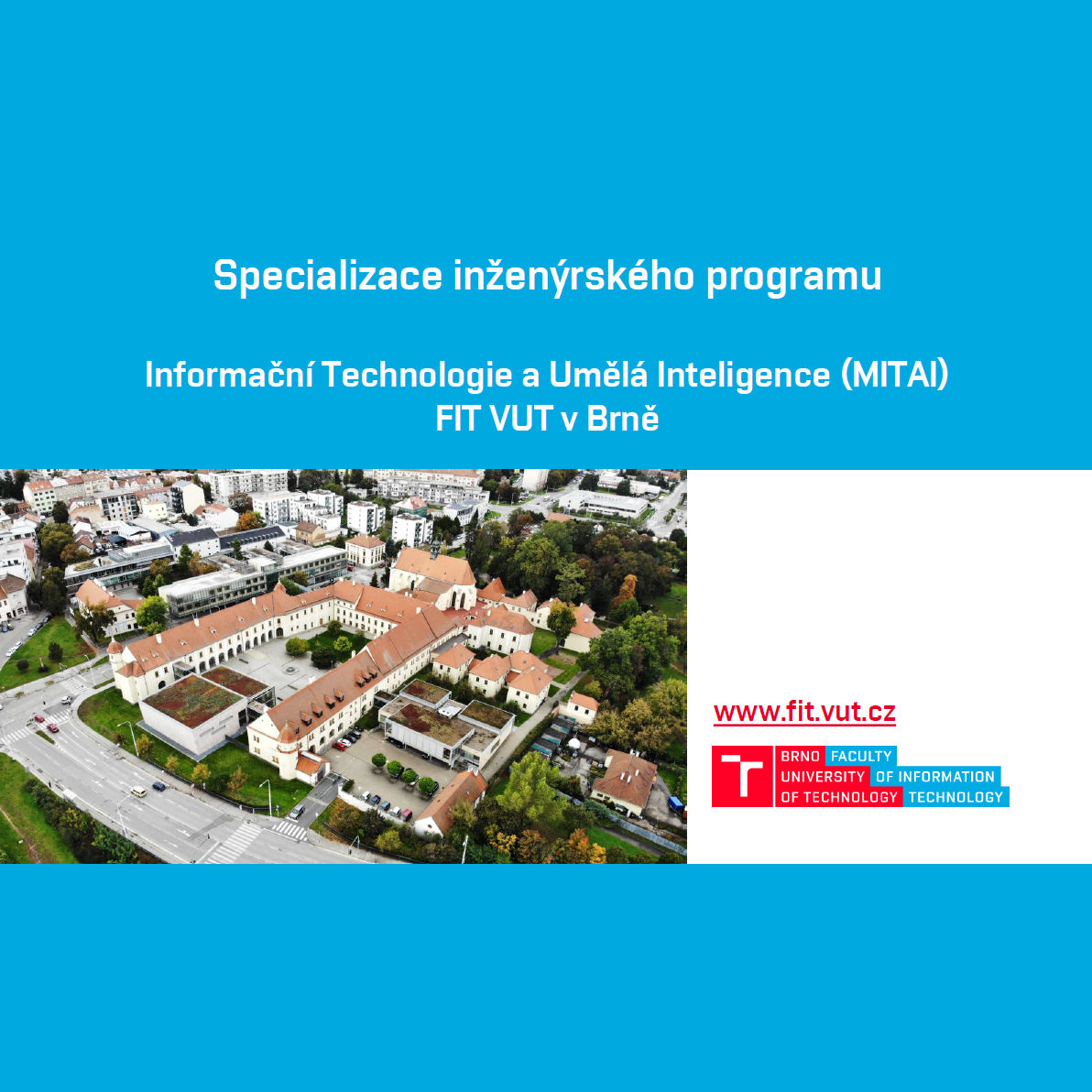Sound, Speech and Natural Language Processing
Acad. Year 2020/2021Full-Time Study2 Years Title Awarded Ing.
Specializace pokrývá obory zvuk, řeč a text od vzniku signálu (hudební akustika), přes zpracování signálů, až po strojové učení a interpretaci výsledků. Jsou v ní silně zastoupeny předměty týkajících se strojového učení, které je dnes základem většiny výzkumných i aplikovaných systémů pro zvuk, řeč a text. Specializaci garantuje a klíčový kurs ZRE učí Doc. Jan Černocký, výkonný ředitel skupiny Speech@FIT, hlavní řešitel řady výzkumných projektů a nadšený popularizátor umělé inteligence. Specializace úzce souvisí s výzkumnými projekty řešenými na FIT, a se spoluprací s firmami z Česka i zahraničí (mj. Google, Ericsson, Raytheon, NTT, Phonexia či Lingea), na fakultě tedy najdete dostatek lidí s "hands on" zkušeností pro vedení projektů a diplomových prací. Disponujeme také řadou kontaktů na špičkové zahraniční laboratoře a firmy, takže pro šikovné studenty není problém problém zařídit diplomovou práci v rámci Erasmus/Socrates či průmyslovou stáž.
1st Year
The common basis of the programme
The common core of the program consists of courses that will give you the knowledge important for all IT engineers:
- Computation Systems Architectures will teach you how to think about how your code will run on modern computing platforms, how to think about programming in a way that makes the most efficient use of resources, i.e., that your application makes the best use of the power of modern platforms, makes efficient use of system memory resources, and is also efficient in terms of energy consumed.
- Functional and Logic Programming will teach you that although classical imperative programming is a very widely used paradigm and is very close to machine-level implementation, there are other approaches that will give you a new perspective on some key problems and help you get novel and often more efficient solutions to them.
- Modern Trends in Informatics (in English) you need to know to see where the field is going and what to expect in practice in a few years.
- Parallel and Distributed Algorithms is a course that will show you the patterns, limits, and pitfalls of parallel and distributed algorithmic solutions and the associated synchronization mechanisms, without which you will hardly succeed in solving many of the more complex problems.
- Statistics and probability is the right hand of every engineer to process numerical results of experiments or data obtained while running your application, analyze them and learn from them to make further decisions is almost his daily bread.
- Theoretical Computer Science shows the limits of computer science capabilities through formal languages and mathematical models of computation. This is the only way to understand whether your problem is even solvable and, if so, with what resources and means to prove it.
- Data Storage and Preparation, especially big data, and extracting knowledge from it is a valuable art to any computer scientist. It is a key aspect that strongly influences the effectiveness of many solutions and applications.
- Artificial Intelligence and Machine Learning is a course where you will learn how to teach computers to understand our world and make them solve problems that are easy for humans but difficult for an algorithmic machine to handle.
They will pass on all their knowledge and hold you in difficult moments
Prof. Dr. Ing.
Černocký Jan
He teaches Signals and Systems, mostly a hated object full of complex numbers, convolutions, and other disgusts. Only later will the students appreciate that they will be useful in their life in the processing of sound, video, but also sensory or large-scale data. He like to advise thoughtful students with many projects including Erasmus+.
What are we talking about?
-
Brno, June 17, 2025) From June 23 to August 1, the Faculty of Information Technology at the Brno University of Technology (FIT BUT) will host the 32nd edition of the prestigious international workshop JSALT 2025. …
-
IT lacks new perspectives and diversity. FIT BUT helps open doors for girls
Although IT is now permeating almost all fields and human activities, women and girls still make up a minority in this sector, both in schools and in practice. Yesterday's International Day of Women and Girls in IT reminds us why it is important to change this imbalance and open the way for girls to pursue technical education and careers.
Come to FIT!
Other Master
Specializations
-
Application Development
-
Bioinformatics and Biocomputing
-
Computer Graphics and Interaction
-
Computer Networks
-
Computer Vision
-
Cyberphysical Systems
-
Cybersecurity
-
Embedded Systems
-
High Performance Computing
-
Information Systems and Databases
-
Intelligent Devices
-
Intelligent Systems
-
Machine Learning
-
Mathematical Methods
-
Software Engineering
-
Software Verification and Testing
-
Sound, Speech and Natural Language Processing
